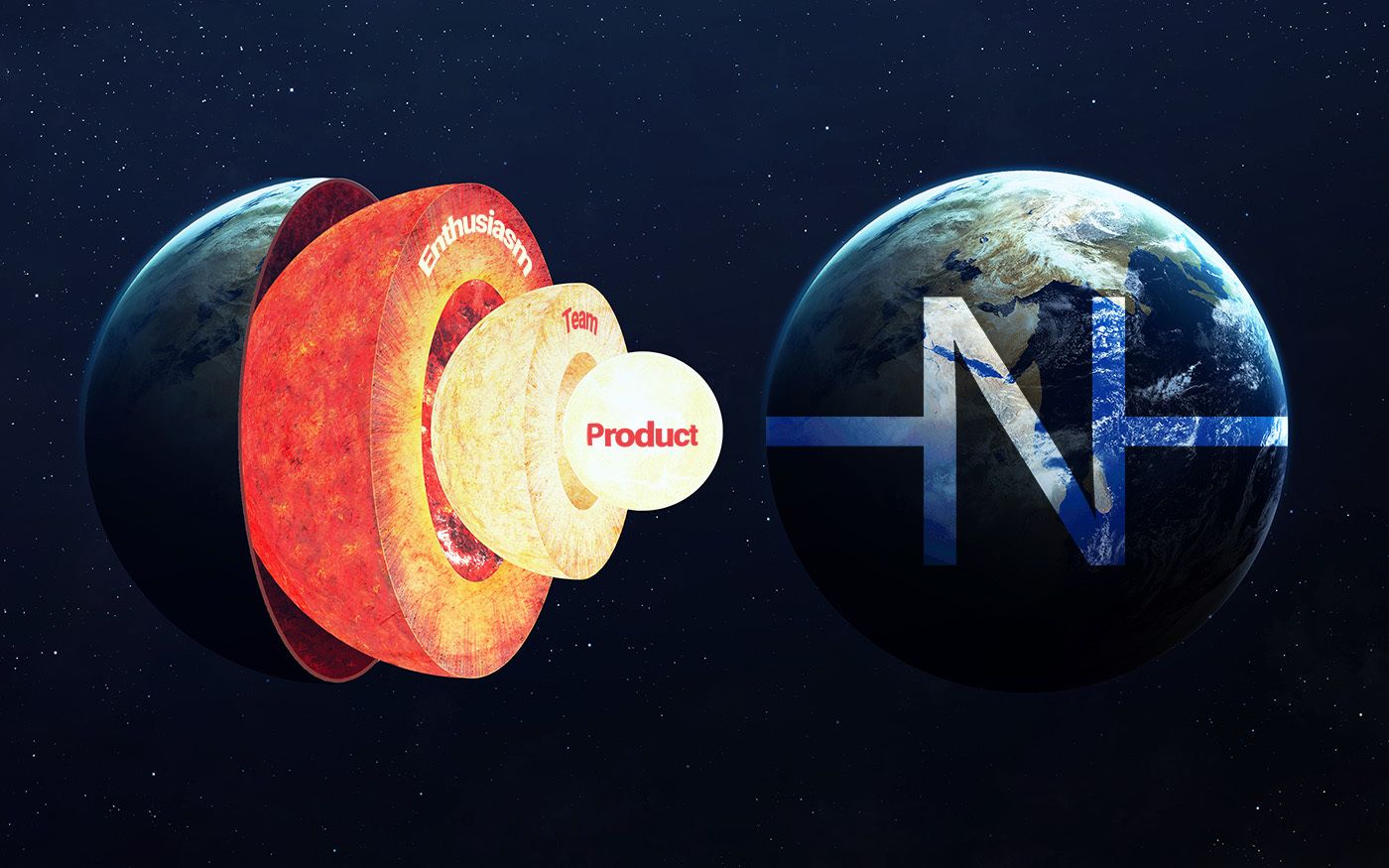More value per dollar

Products are our core
Since we started working together (our founders met professionally in 2005), we have enjoyed developing products for end users the most.
We've also created company strategies, planned and executed isolated marketing campaigns, designed trade show booths, and raised investor funds on behalf of other companies. But in the end, we always ended up back with products. Mostly in our niches Text AI and search, but sometimes somewhere else entirely. For example, our first assignment after founding NEOMO (then under the name IDEENPLANET) was to develop a membership portal for a discount club.
Since the development of good products costs money, we decided on a threefold strategy:
- We develop products on behalf of and in collaboration with customers whose vision we share.
- We develop products as a generalization of "one shots" from our consulting practice.
- We finance products that are really close to our hearts from current business.
Consulting à la NEOMO
This explains our approach towards consulting services: We do not deliver person hours or isolated building blocks, but we always contribute to a product - sometimes throughout the entire chain from conception to roll-out, sometimes only in a part of it.
We understand the business model of our customers, the interests of their users, the vision behind the product and develop towards this vision. No specification - no matter how detailed - can replace this way of thinking. This is often the source of unpleasant difficulties when working with external development teams: many have strong work ethics, but very few make an effort to deeply understand the task at hand or prioritize the final product over the hours billed.
We frequently advise clients not to develop certain features (yet) – even though we lose order volume as a result - simply because they don't fit into the overall product or their value is disproportionate to the effort involved.
A word about hourly rates
We do not advertise low hourly rates. We are not the “cheapest" - whatever that means. Our goal is different: we deliver the most value to our clients per dollar / euro spent. Our clients don't pay for onboarding new project staff, prospecting, research, or anything like that. They only pay for the value we create.
We use open source components or proprietary software depending on what delivers the most value. Based on our own testing and experience we will usually know this before any implementation, otherwise we define a meaningful "spike" together with our customers.
No matter if open source or pay-as-you-go software, in most cases we also already have best practices and readymade configurations - as an effective jump-start for the chosen technology.
Secret sauce
Even if it sounds like a cliché: The fact that all this works and leads to our current and surely also future success is mainly due to our team. "T-Shaped skills" have always been a matter of course for us, as has an excellent working atmosphere.
For example, our team includes senior engineers who started as computational linguists 15 years ago, cloud scaling experts who have also built React front-ends, mathematicians with a penchant for search algorithms, data mining fanatics and deep learning understanders, and more.
Every client of ours automatically accesses this talent pool, as we assemble the project team to best match requirements and skills.
To be honest: If, with this team and our enthusiasm, we can really only bill a few hours for "classic consulting" in the end and the whole thing doesn't lead to a product that we like to use ourselves, then the job is not for us.
